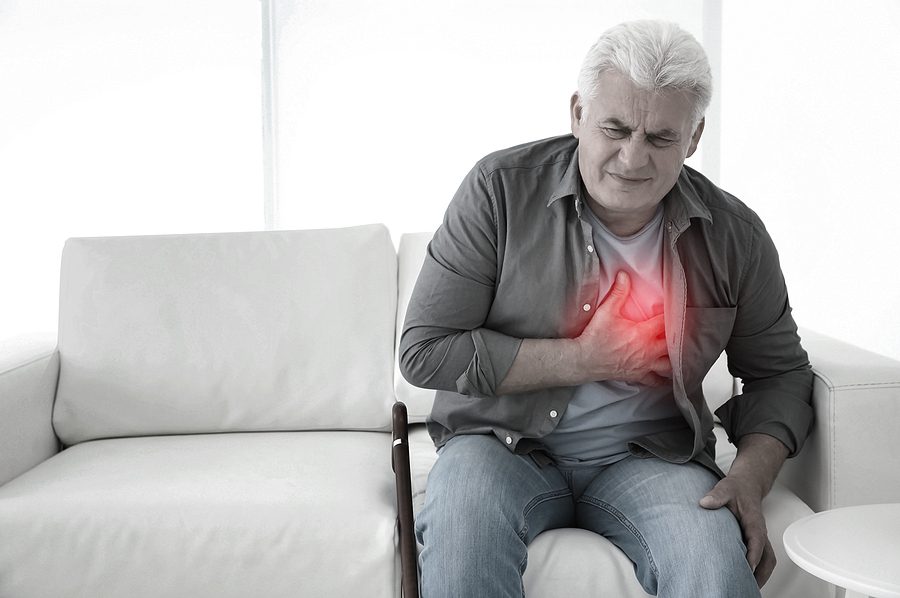If your elderly loved one has a history of heart-related health issues, you should learn the signs and symptoms of heart failure. Despite the absoluteness of the name, it doesn’t mean that their heart ceases working completely, or even all at once. Recognizing signs of heart failure is essential to preventing further complications, or even a heart attack.
What is Heart Failure?
Heart failure is a degenerative condition of the heart. It slowly progresses towards the complete shut-down of the heart and circulatory system. Overall, heart failure is when the heart weakens, eventually to the point where the blood can’t move through the heart fast enough. The valves of the heart must stretch to make room for the increasing volume of blood contained inside. Generally, this can lead to pain in and around the heart. As it progresses, the pain and complications can get more critical.
Causes of Heart Failure
Generally, having other chronic heart-related conditions can increase the risk of heart failure. Additionally, family history of the condition can play a role in your risk factors. High blood pressure, arrhythmia, obesity, and more can be contributing factors. Substance use/abuse can also play a role. Tobacco, alcohol, and other recreational drugs can lead to heart failure. Lastly, other medications you are taking for other medical conditions can have side effects that lead to this. This is more common among medications for cancer treatments, including chemotherapy and radiation.
4 Stages of Heart Failure
There are 4 stages of congestive heart failure. As a chronic condition, it progressively worsens over time. The 4 stages are referred to as A, B, C, & D.
Stage A
At Stage A, you are considered to be at high risk of developing heart failure. Family history and other chronic medical conditions can contribute to this stage. Conditions such as hypertension, diabetes, alcohol abuse, and other heart-related conditions can all contribute to your risk of developing it.
Stage B
Stage B is a pre-heart failure. Generally, this means that your doctor has given you a diagnosis of left ventricular dysfunction. However, you probably have not had any true symptoms at this stage. Your left ventricle is showing signs of strain, and this can progress further if not managed well.
Stage C
In Stage C, you are diagnosed with heart failure. Additionally, you may have or have had symptoms of the condition. These symptoms can vary from case to case. But, the most common symptoms at this stage include shortness of breath, fatigue, weak legs, nighttime urination, and swollen extremities.
Stage D
This is the final stage of heart failure, where it is at its most extreme. At this stage, the left chambers of your heart are under a lot of strain. The right ventricle may also experience strain as it continues. In this stage, you will likely experience additional symptoms. These can include rapid or irregular heartbeats, weight gain, hacking coughs, bloated stomach, loss of appetite, and heart attacks.
Caring for an Elderly Loved one Living with Heart Failure
The amount of care your loved one needs will generally depend on the stage that they are in. Their healthcare provider can assist you in determining the best course of action for care. Overall, helping your loved one lose weight, eat healthier, and stay active can help reduce the risks of worsening their condition.
Hiring Additional Care
In today’s world, it is hard to be able to be there for your elderly loved one at all times. Hiring a home health Aide allows you to have peace of mind that your loved one will be taken care of when you are not around. SafeHarbor Home Healthcare Services provides Certified Home Health Aides for the elderly and disabled. The care our aides provide includes companionship, nutritious meal preparation, accompaniment to doctor’s appointments, and more.
Safe Harbor Healthcare Services does not provide medical, healthcare, or financial advice via articles. This material has been prepared for informational purposes only. It is not intended to provide, and should not be relied on for medical advice.
Safe Harbor Healthcare Services has been providing excellent home care on Staten Island since 1967. Our services help the elderly and disabled live safely and independently; while giving their families the peace of mind they need. For more information contact us by clicking here, or call (718)-979-6900.

